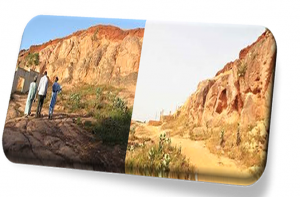
It is generally believed that the Gwandara people came from Kano state – Nigeria and later settled in their today’s various locations. They migrated at about 1365 to escaped religious persecution or force conversion to Islam. So they left Kano under their leader whose father was a king and they first settled at Karshin-Daji (Fadan-Karshi) in the present day Kaduna state and subsequently Gwandara became their name.
The original and full appellation being “Gwandarawa-da-Sallah” meaning rather dance to prayers (Islamic norms). However, from Fadan-Karshi, Gwandara people spread to other chiefdom within and outside Kaduna state. They have towns and villages numbering to over 150 across the five states mentioned below and apart from other small settlements among other ethnic group in towns and villages which are not principally Gwandara. Gwandara are one of the Chadic-western speaking people of Nigeria living mainly in FCT – Abuja, Niger State, Nasarawa State, Kaduna State and Kano State – Nigeria. Articles shows that there are elements of Gwandara speaking people in related states like Taraba State and Kogi State but not confirmed yet!
Traditionally, Gwandara people were grouped with the Hausa – Fulani people as the inhabitants of the city of Kano, Kano state – Nigeria. The Gwandara history relates that Islam was introduced into Kano in the fourteenth century. (Read a book by: His Royal Highness – Dr. Silvester O. Ayih, the late Abaga of Toni and Sarkin Garaku in his journal “Gwandara Book of Fame” (2003) for more clarification about Gwandara origin).
Gwandara were the major occupants of the Dalla, Goron-Dutse and other related places which includes Dan-batta and Makoda area of Kano State. The Dutsen-Dalla (Dalla Highland in Kano state) was their traditional highland where all their traditions and rituals are performed.
Reference: as sourced, written and edited by: Musa Muhammed-Mustapha (Tetra-Tech. Computers) | Here listed are the related Gwandara Cultural Heritage Ethnics group: Gade | Koro | Yeskwa
Click here for Gwandara religious practice
